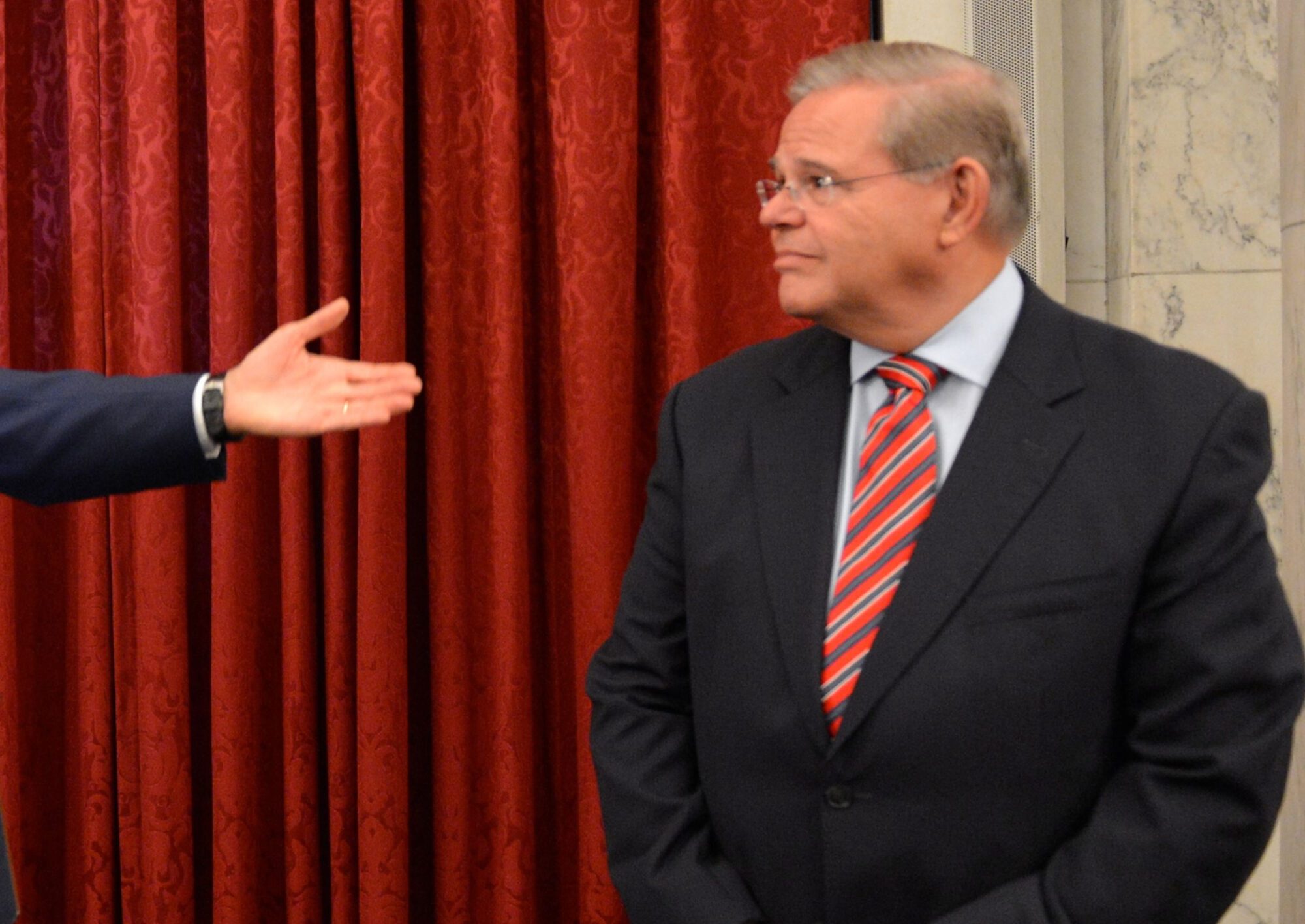
(Photo from U.S. Department of State from United States, Wikimedia Commons - RealClearWire)
The easy, politically expedient thing to do is make political hay of Menendez’s obnoxious ethical lapses. But if the desire is to at least try to fix the system, one solution might be term limits.
In 1988, Pulitzer Prize-winning New York Times reporter Hedrick Smith authored “The Power Game: How Washington Works.” It was a fascinating, if unflattering, portrait of the nation’s capital that not only has proven prescient, but remains relevant today.
Having arrived in Washington in 1962, Smith charted what he called “stunning transformations” in the previous two and a half decades. These ranged from “the new congressional assertiveness” engendered by Richard Nixon’s resignation and the revolt by young members against the seniority system, to how the utter supremacy of television had warped the system and produced “a new generation of video politicians whose medium was the tube rather than the political clubhouse.”
These words were written, mind you, when Matt Gaetz was seven years old – and two years before Alexandria Ocasio-Cortez was born. But the most significant change Smith documented was the stunning proliferation of lobbyists, hangers-on, and congressional aides.
Many of these aides were not just career politicians, but men and women who’d never had any other career other than politics. One of the subjects highlighted in Smith’s book had worked on Capitol Hill as a staffer, only to run for Congress. He won. His quip to Smith upon reaching Congress as a back-bencher (lightly paraphrased) was that “never has one individual so willingly given up so much power.”
Sen. Robert Menendez is a poster boy for this new ethos. He ran for student body president in high school and won, and never really stopped angling for office. While still in college, he served as an aide to the mayor of Union City, N.J. At 20, he was elected to the local school board. A few years later, he ran against the mayor he worked for. Menendez lost that first campaign, but won the rematch in 1986. The following year, he ran and won a seat in the state legislature, and in a sign of the avaricious nature that would later get him indicted, he kept the mayor’s office (and salary) serving in both posts at once.
From there, it was the state Senate in Trenton, a House seat in Washington, and in 2006, he was appointed to the U.S. Senate seat he still holds, at least for now. And while the greed alleged in a criminal indictment filed last month by federal prosecutors has alienated even his fellow Democrats who have called for his resignation, there’s a case to be made that Bob Menendez isn’t the problem as much as he’s a symptom of the problem of a system dominated and warped by career politicians.
Consider a description from the New York Times about how Menendez has operated:
“He accepted rides on private plans, luxurious vacations, and other perks from wealthy friends while freely using his office to advance their interests.”
Contrast that description with the Hedrick Smith anecdote about a newly elected pol. While until recently Menendez was the picture of power, including routine visits to the smoking porch at Morton’s (his annual bill at the steak chain alone was reported to be $16,000) where he enjoyed the best of the best cigars, the newbie in Congress was a bit of a nobody. Well, of course.
This may be Menendez’s nature, as reporters haven’t yet gotten around to digging into what he was up to for all those years in Union City and Trenton. But one thing is clear. He certainly learned the ways of Washington: getting to know the right people (elected and unelected) while perfecting the skill of moving money to the programs and projects desired by those with money, or who wanted to attain it. Menendez, the New York Times also noted, helped bring home the bacon for his constituents as well, from a Hudson County light-rail network to billions of dollars in federal aid to rebuild after Hurricane Sandy ravaged the state in 2012. Recently, he’s credited with securing funding for a new rail tunnel beneath the Hudson River, currently the nation’s largest public works project.
Little of the federal funding Menendez directed to New Jersey could have been secured by a rookie senator. But Menendez learned, and learned well, the ways of Washington over time. As former New Jersey Gov. James McGreevey put it to the Times, “Bob labored intensely to master detail.” This political mastery is what made him such a magnet for money, as those who can move billions of dollars around tend to be.
“No man’s life, liberty, or property are safe while the Legislature is in session,” is an old saw of American politics. It’s even truer for Congress. And one moral of the Menendez story, whether he beats the rap or is convicted, is that term limits would limit the time spent in Washington, time in elected office that is so instrumental in one’s ability to grow government.
It’s something to think about. The easy, politically expedient thing to do is make political hay of Menendez’s obnoxious ethical lapses. But if the desire is to at least try to fix the system, one solution might be limiting time in office so that elected officials don’t have the time to amass the power and learn the skills that it takes to act unethically.
#####








